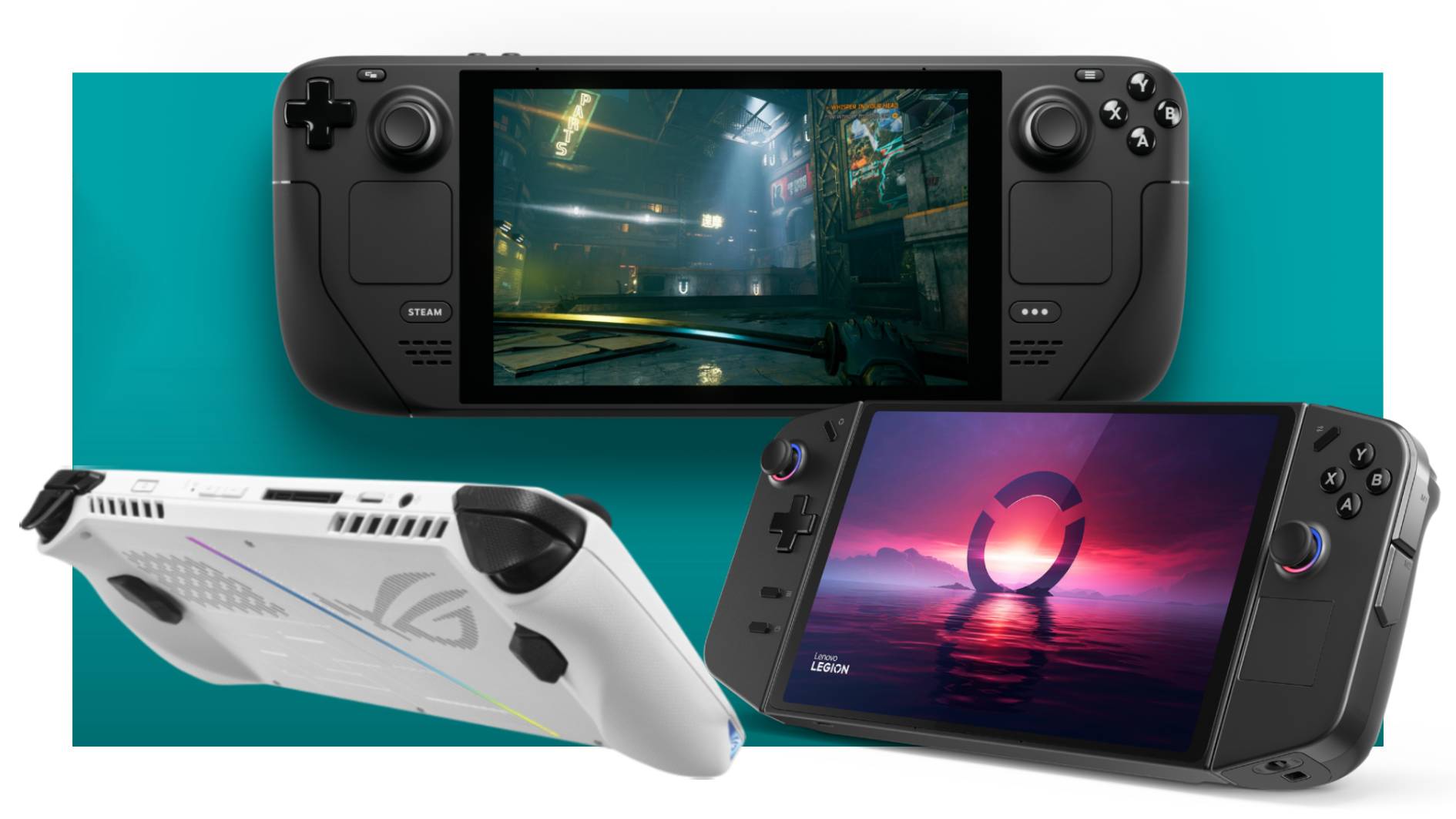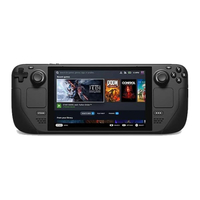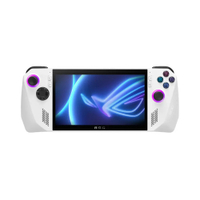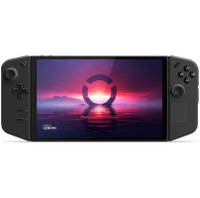I can't think of a better last minute gift idea for a PC gamer than one of these handheld gaming PCs for under $500
Okay fine, a gold-plated Lamborghini. Or a sense of overall well-being. But other than that.

The holidays have a habit of sneaking up on us, don't they? But have no fear, because if you're having a last-minute panic trying to find the perfect gift for the PC gamer (or PC gaming curious) in your life, I can't think of a better gift idea than one of these handheld gaming PCs.
The best handheld gaming PCs make for perfect additions to a PC gamer's life, enabling them to take their hobbies on the go, from long-haul flights to sneaking in the odd indie game session on a lunch break. We happy few on the hardware team love our handhelds and spend all year long testing the very best, so each of these options comes highly recommended as a handheld worth having.
From the still-very-cheap and still-very-brilliant Steam Deck to the big screen bruiser that is the Lenovo Legion Go, there's sure to be something here to suit. So here are three handhelds that I reckon would make any PC gaming enthusiast jump for joy over the holiday season.
- Steam Deck 256 GB | $399 at Steam
- Asus ROG Ally 512 GB | $459 at Amazon
- Lenovo Legion Go 512 GB | $500 at Amazon
Steam Deck
Steam Deck (LCD) | 256 GB SSD | SteamOS | $399 at Steam
Okay, the Steam Deck may have had an OLED refresh and there are heaps of more powerful handhelds around, but the original version is still the archetype of what a mobile PC gaming device should be. It's just as powerful as the most recent model so all those Steam Deck compatible games should run well. It's the OG PC gaming handheld, and it still demands respect, although this particular model does have quite a small SSD. Replacing it later with a larger model is no great hassle, however.
The Steam Deck might have been out for a while now, but it's still absolutely worth considering as the best budget handheld extraordinaire. We've regularly seen it on discount over the years, but for $399 straight from Valve, this 256 GB model is definitely worth serious consideration.
256 GB might be a little tight for several large games installed at once, but it's still a decent dose of storage to get started with—particularly if your beloved likes an indie game or 12. One of the nice things about the Deck is how easy it is to upgrade the storage later on, so there's room for expansion here for anyone who knows which way around to hold a screwdriver.
Besides that caveat, the Steam Deck is considered a classic of the genre for a reason. It's well-built, nicely sized, the controls feel great, and still has enough grunt to deliver surprising performance in some very demanding games.
There are faster, and there are newer, but anyone who's owned a Deck will happily rave about it. Not least, virtually everyone here at PC Gamer.
Asus ROG Ally
Asus ROG Ally | Z1 Extreme | 7-inch screen | 16 GB RAM | 512 GB SSD | $589.99 $458.95 at Amazon (save $131.04)
The original ROG Ally—still a strong performer even next to its improved sibling, the ROG Ally X. That's because they are both powered by the same Z1 Extreme chip from AMD. Considering the money off the original Ally, there's something to be said for choosing this over the X, though the bigger battery life on the X is an improvement.
Price check: Best Buy $499.99
The Asus ROG Ally might have had a refresh in the form of the Asus ROG Ally X, but that means that the original can now be found at a discounted price—and it's still a pretty mean machine.
That's thanks to the AMD Z1 Extreme APU nestled inside, which is the very same chip as the newer model. Our hardware overlord Dave James gave the ROG Ally a score of 86% in his review, and when you've used as many handhelds as him, that really does mean something.
Not only is the ROG Ally a superb gaming companion on the move, but as a Windows-based handheld, it also makes a mean little portable PC with the addition of a dock. It's got a lovely screen, it's decently lightweight, and it even runs quiet under load, making this a consummate all-round performer. And for $459 at Amazon right now, it makes for a compelling device for the cash.
Lenovo Legion Go
Lenovo Legion Go | Z1 Extreme | 8.8-inch screen | 16 GB RAM | 512 GB SSD | $699.99 $499.99 at Amazon (save $200)
The Legion Go is one of the more polished handhelds on the market, with a sleek 8.8-inch screen and detachable controllers. That screen is a little overkill for the lil' AMD chip inside this machine, the Z1 Extreme is also found in the ROG Ally, but it's great for playing indies on while relaxing. One of the controllers also becomes a mouse if you need it, which is a bit of a gimmick but works pretty well.
Price check: Newegg $539.99 | Best Buy $749.99 (1 TB version)
And for my final trick, how about something a bit different? The Lenovo Legion Go makes use of the same APU as the ROG Ally above, but it's got some interesting tricks up its sleeve.
For a start, it's got clever detachable controllers like the Nintendo Switch, which means you can sit back and take advantage of its other headline feature—an 8.8-inch screen.
That's huge for a handheld, and it's a truly impressive thing. The 144 Hz IPS panel looks fantastic in motion, and it's even got a 1600p native resolution.
There are some caveats, however. That 1600p res means demanding games are going to prove too much for the AMD Z1 Extreme, although you can of course adjust it down to improve the framerates. And it must be said that the mega panel size means the Legion Go is a chonky device overall, so it's less portable than the others on this list.
But for $500 at Amazon, I reckon this is a huge amount of handheld for the cash. It's a multi-talented marvel with clever ideas, and something any PC gamer would be happy to spend many hours with come this non-specific-holiday morning.
The biggest gaming news, reviews and hardware deals
Keep up to date with the most important stories and the best deals, as picked by the PC Gamer team.

Andy built his first gaming PC at the tender age of 12, when IDE cables were a thing and high resolution wasn't—and he hasn't stopped since. Now working as a hardware writer for PC Gamer, Andy's been jumping around the world attending product launches and trade shows, all the while reviewing every bit of PC hardware he can get his hands on. You name it, if it's interesting hardware he'll write words about it, with opinions and everything.




